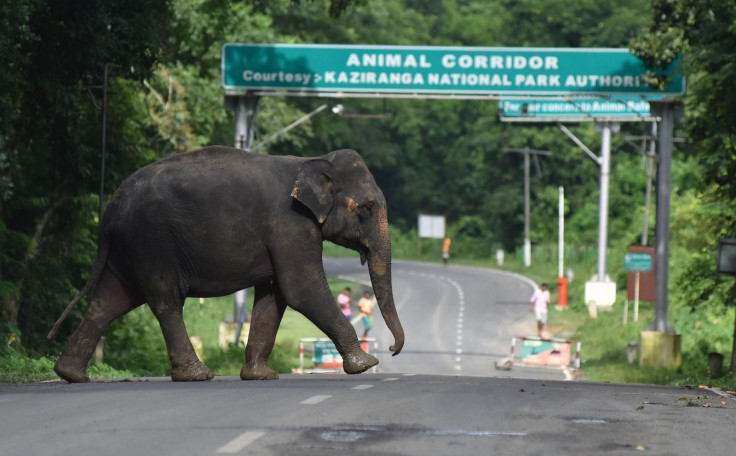Horrific image of baby and mother elephant being attacked with flaming tar-balls wins photography prize
Photographer Biplab Hazra captured the disturbing moment in eastern India where attacks on elephants are common.
Urbanisation has had a merciless effect on India's wildlife, an issue reflected clearly if not gruesomely in this year's winner of the Sanctuary Wildlife Photographer Award. The submission, titled Hell is Here shows a mother elephant and her calf being attacked by a hoard of angry people who throw flaming tar-balls and fire crackers at them.
Photographer Biplab Hazra captured the disturbing moment in Bankuru district, in eastern India's state of West Bengal. In the description of the event, Sanctuary Nature Foundation which hosts the awards, described how the "calf screams in confusion and fear as the fire licks at her feet" as the mob laughs and shouts in the background.
"The calf may not have been intentionally set on fire by the villagers living in the vicinity of the elephant corridor that stretches from southwestern West Bengal up to Saranda forest in Jharkhand, but bursting crackers and throwing fireballs on elephant herds has been a common practice in this part of West Bengal," Hazra, a brick kiln owner by profession, told The New Indian Express.
India is reportedly home to over 70% of the world's Asian elephant population, but also boasts one of the highest human-animal conflict rates. With urbanisation causing their habitats to shrink, pachyderms are forced to venture into other areas in search of food and water. In doing so, they often trample through farms, and residential areas, causing harm to property and life.
This has triggered locals to take extreme measures to ward off these animals, from setting up high-powered electric fences to attacking them with weapons.
"By awarding the photograph, we wanted to raise awareness on the practice of violence against elephants in West Bengal and in other parts of the country," Sanctuary Asia editor Anirudh Nair explained.
Similar incidents take place across the country, especially in the states of Assam, Odisha, Chhattisgarh, Tamil Nadu and Karnataka where elephant populations are higher. In June, a family of four pachyderms, including two calves, died after being electrocuted by an exposed electrical wire in the Kodagu district of Karnataka. At the time, locals claimed the deaths were due to electric fencing installed by private estates in the region.
"With forests being cut down and humans encroaching on areas where animals once lived, elephants and other animals are being left with almost nowhere to go, and routinely suffer from being hit by trains, being electrocuted, or being involved in other conflicts," Nikunj Sharma, Lead-Public Policy, Peta India explained.























